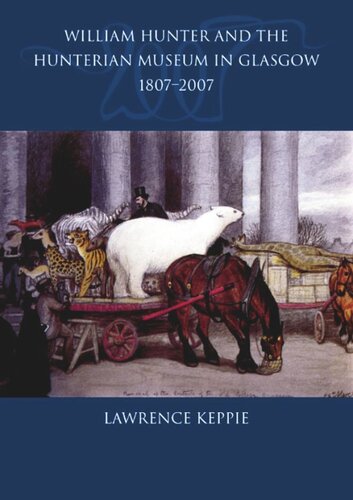

Most ebook files are in PDF format, so you can easily read them using various software such as Foxit Reader or directly on the Google Chrome browser.
Some ebook files are released by publishers in other formats such as .awz, .mobi, .epub, .fb2, etc. You may need to install specific software to read these formats on mobile/PC, such as Calibre.
Please read the tutorial at this link: https://ebookbell.com/faq
We offer FREE conversion to the popular formats you request; however, this may take some time. Therefore, right after payment, please email us, and we will try to provide the service as quickly as possible.
For some exceptional file formats or broken links (if any), please refrain from opening any disputes. Instead, email us first, and we will try to assist within a maximum of 6 hours.
EbookBell Team

5.0
60 reviewsThis book describes the life and achievements of the eighteenth-century Scottish physician William Hunter and outlines the history of the Museum named after him. William Hunter built up a wide-ranging private collection at his home in London, encompassing not only anatomical and pathological specimens related to his medical work, but also books and manuscripts, coins and medals, natural history specimens and artworks. On his death in 1783 he bequeathed the collection to the University of Glasgow where he had long ago been a student, and money to construct a Museum which opened in 1807. The book utilises a wide range of source material, much of it previously unpublished, to tell the story of the Museum's development, the many subsequent additions to its holdings and, more recently, the construction of a new Hunterian Art Gallery which houses not only Hunter's own collection but also numerous works be James McNeill Whistler and Charles Rennie Mackintosh. The Museum is celebrating its bicentenary in 2007.
There is a foreward contributed by Sir Kenneth Calman, Chancellor of the University of Glasgow, and formerly Government Chief Medical Officer and Vice-Chancellor of the University of Durham